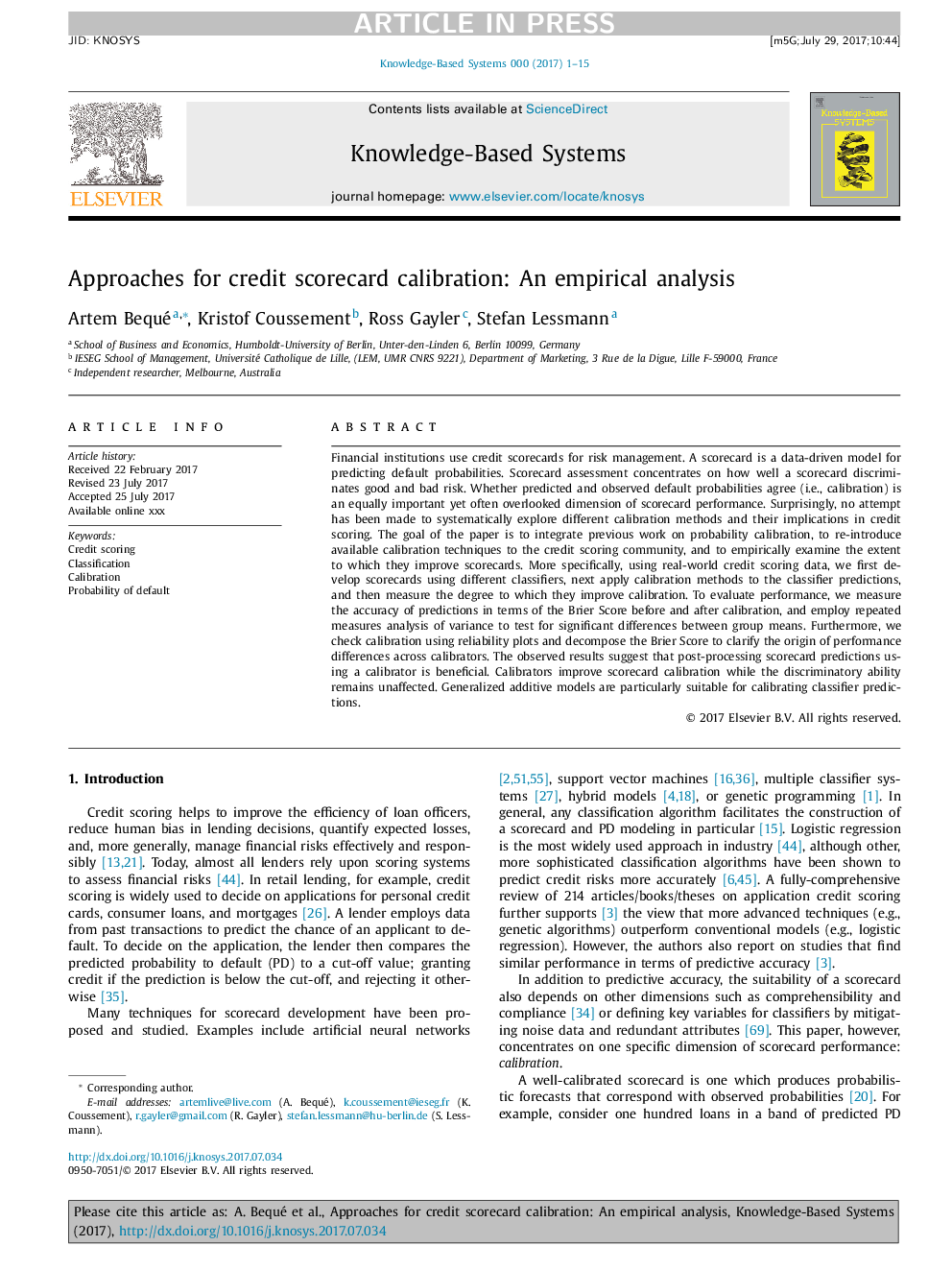ترجمه فارسی عنوان مقاله
رویکردهای کالیبراسیون کارت امتیازی کارت: یک تحلیل تجربی
عنوان انگلیسی
Approaches for credit scorecard calibration: An empirical analysis
| کد مقاله | سال انتشار | تعداد صفحات مقاله انگلیسی |
|---|---|---|
| 145938 | 2017 | 15 صفحه PDF |
منبع

Publisher : Elsevier - Science Direct (الزویر - ساینس دایرکت)
Journal : Knowledge-Based Systems, Volume 134, 15 October 2017, Pages 213-227
ترجمه کلمات کلیدی
نمره اعتباری، طبقه بندی، کالیبراسیون، احتمال پیش فرض
کلمات کلیدی انگلیسی
Credit scoring; Classification; Calibration; Probability of default;

